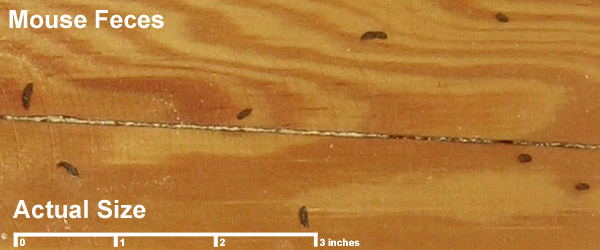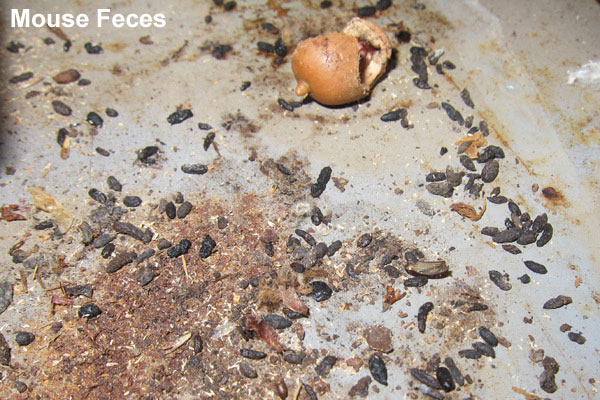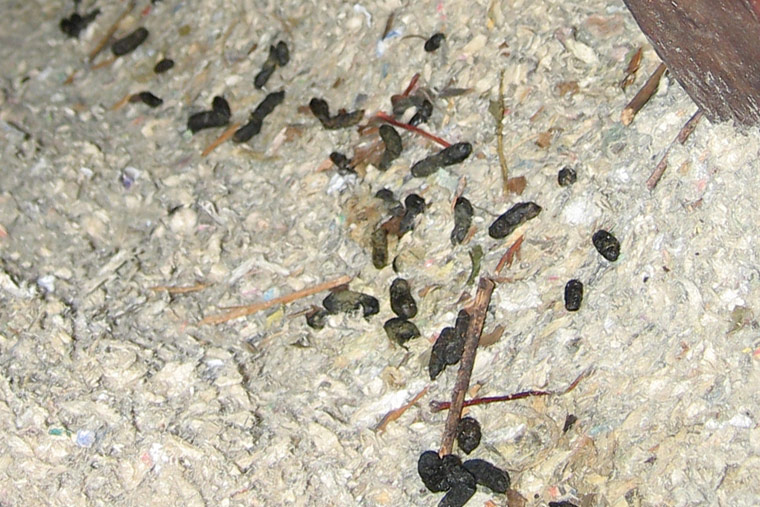-
info@aaanimalcontrol.com
Call us for help in your town
Humane Wildlife Education
Pictures of Mouse Droppings
Need mouse removal in your hometown? We service over 500 USA locations! Click here to hire us in your town and check prices - updated for year 2020.



Here are some other articles you might want to read about mouse control:
How to get rid of mice
How to trap mice
How to kill mice
How to catch mice alive
How to keep mice away
How to get rid of mice in the attic
Mouse removal methods
Do mouse repellents work
Pictures of mouse droppings
How to get mice out of your walls
Mouse in the wall scratching
How much does mouse removal cost?
Directory of Mouse Removal Professionals
The Fastest Way To Get Rid Of Mice
Home Remedies To Keep Away Mice And Get Rid Of Them
Mouse feces/urine smell removal -
If you have won the war against mice, you are faced with the task of cleaning up the mess the animals have left in their wake. You cannot get rid of the smell associated with rodent feces/urine without getting rid of the waste itself. This can prove difficult if porous surfaces have absorbed urine or liquid from the droppings. The best cleaners for feces/urine are enzymatic cleaners. These cleaners break down the molecules of rodent waste into harmless particles, neutralizing any smells associated with them. It is hard to find a good enzymatic cleaner; you may have to call a professional company to find a substance that works. Whatever you do, do not vacuum or sweep up the droppings. The last thing you want to do is stir up the dust in the area. Rodent waste carries a number of harmful diseases that can become airborne. You also do not want to use bleach. People think bleach will kill anything, but when it reacts with the ammonia in urine, it creates Mustard Gas. Unfortunately, you cannot hope to salvage soiled insulation. This is a huge reason why rodent smell lingers. Any dirty insulation has to be replaced.
Mouse poop -
All animals eliminate waste in one form or another. Mouse poop is small but just as dangerous to people as rat poop. You will know droppings belong to a mouse because they will be about the size of a piece of rice. Very rarely does mouse poop exceed this size. Mice will poop often and usually in areas where they spend a lot of time. You can use this frequent marking to your advantage when you attempt to trap the rodents. Mice are creatures of habit and will return to their favorite areas over and over again. Place snap traps near droppings or urine to achieve the best results. Mouse poop should be cleaned up after the animals have been eliminated from the home. To get rid of the poop, use the shovel method; never sweep or vacuum. Stirring up the air too much can result in pushing dangerous particles into the air. Hantavirus is easily aerosolized and then inhaled. This disease can be fatal and may not manifest with recognizable symptoms.
Photo of mouse poop -
A photo of mouse poop may very well give you the information you need, especially if you are trying to determine what animal is inside of your home. Mouse poop is relatively easy to distinguish from rat feces or squirrel droppings. Mice leave behind much smaller pieces of waste. If the poop you found is as small as a grain of rice, you probably have a mouse or rodent of similar size. Voles and moles will occasionally be found near a home, but these creatures are usually found outside and not inside. Rat feces and squirrel droppings are significantly larger than anything a mouse would leave behind. If you have found poop that is as large as a bean or larger, you have something bigger than a mouse to worry about. Droppings that are larger than a bean may indicate a more difficult animal like an opossum. If this is the case, you will notice a significant mess and odor in the home, most likely in the attic. Animal waste can help determine the creature you are dealing with. For pictures, look at wildlife removal websites and see what they have to offer. Along with pictures, these websites also have helpful hints to get people through difficult animal situations.
What does mouse feces look like? Where is it found?
Need wildlife removal in your hometown? We service over 500 USA locations! Click here to hire us in your town and check prices- updated for year 2020.
More often than not it's the stuff nice leave behind that give the game away. It is quite rare that you will physically see a mouse, although if you head down to the kitchen in the middle of the night you may spot one scurrying across the floor.

Take a closer look towards the edges of the floor, where it meets the walk, and you may spot a few things. If you see tiny little black pellets, there's a good chance you've found some mouse droppings. It's a lot more common than you'd think. Also, being rather small, those droppings are quite easy to miss when there's only one or two of them lying around. The more mice there are, the more droppings that will be left behind. You will also spot more of the tiny black / brown pellets around the areas the mice eat. If you have a cardboard box filled with cereal on the countertop, for example, and the mice have started to chew their way through it, you'll find poop in among the leftover cardboard bits they leave behind. These mice are actually quite messy creatures.
The average mouse will leave behind somewhere in the region of 50 to 80 droppings over the course of one night running around your home, so, although small, it won't be long before you spot them. Usually between 2 and 8 mm in length, they look quite unassuming, but they can be disease-ridden. That's why you don't want these rodents, or their droppings in your home.
There are plenty of places these mice can hide in your home. They are only tiny, after all. Despite their small stature, their droppings are usually a very big sign that you have an infestation on your hands, and it's definitely a sign that you shouldn't ignore.
For more information, you may want to click on one of these guides that I wrote:
How to get rid of mice - my main mouse removal info guide.
how to get rid of mice in the attic
how to kill mice
What does mouse poop look like
mice in the walls


















